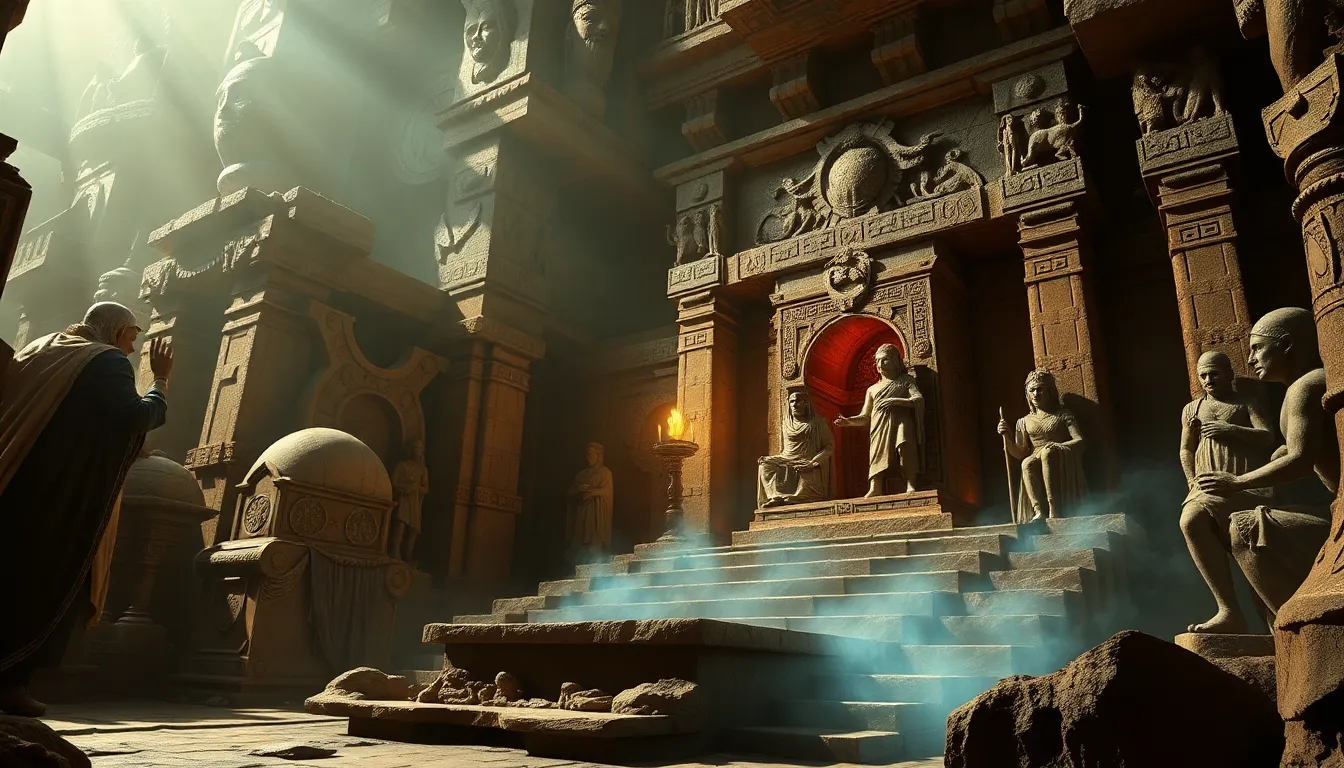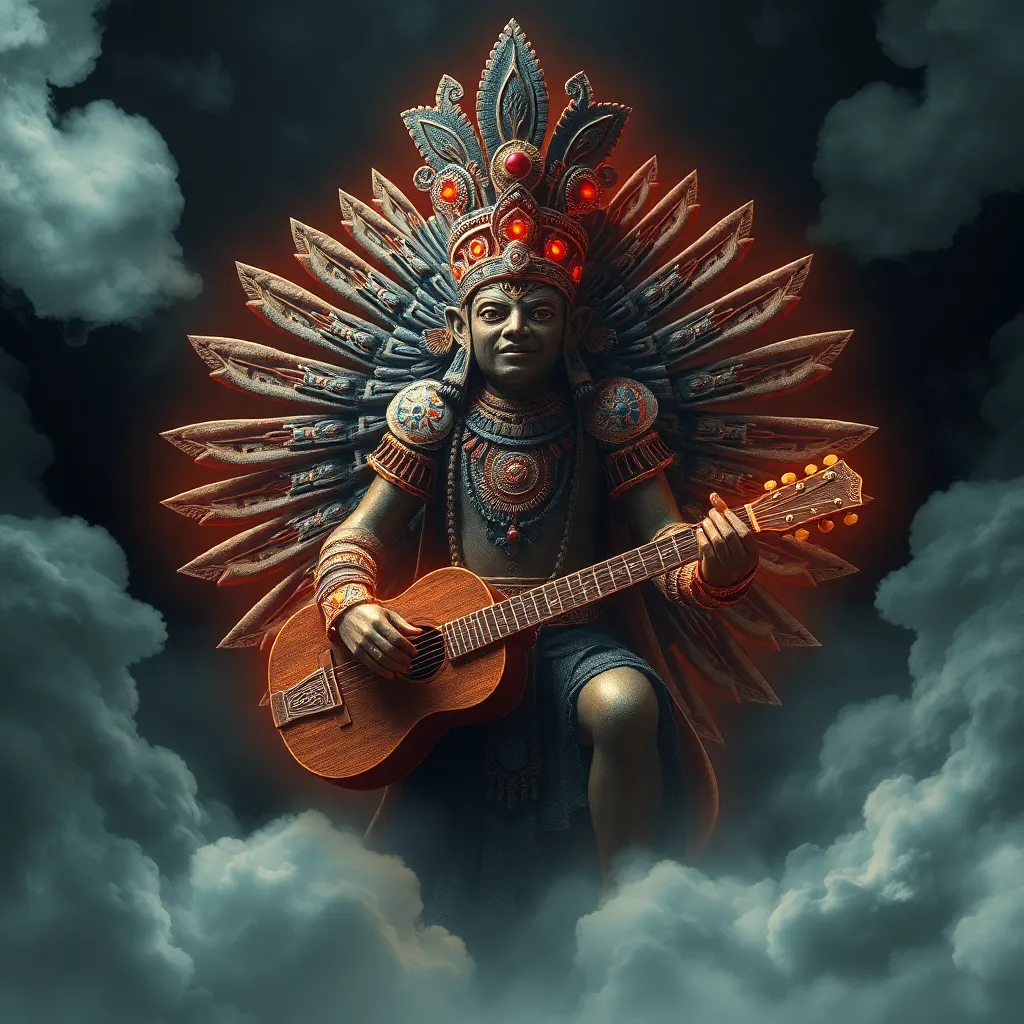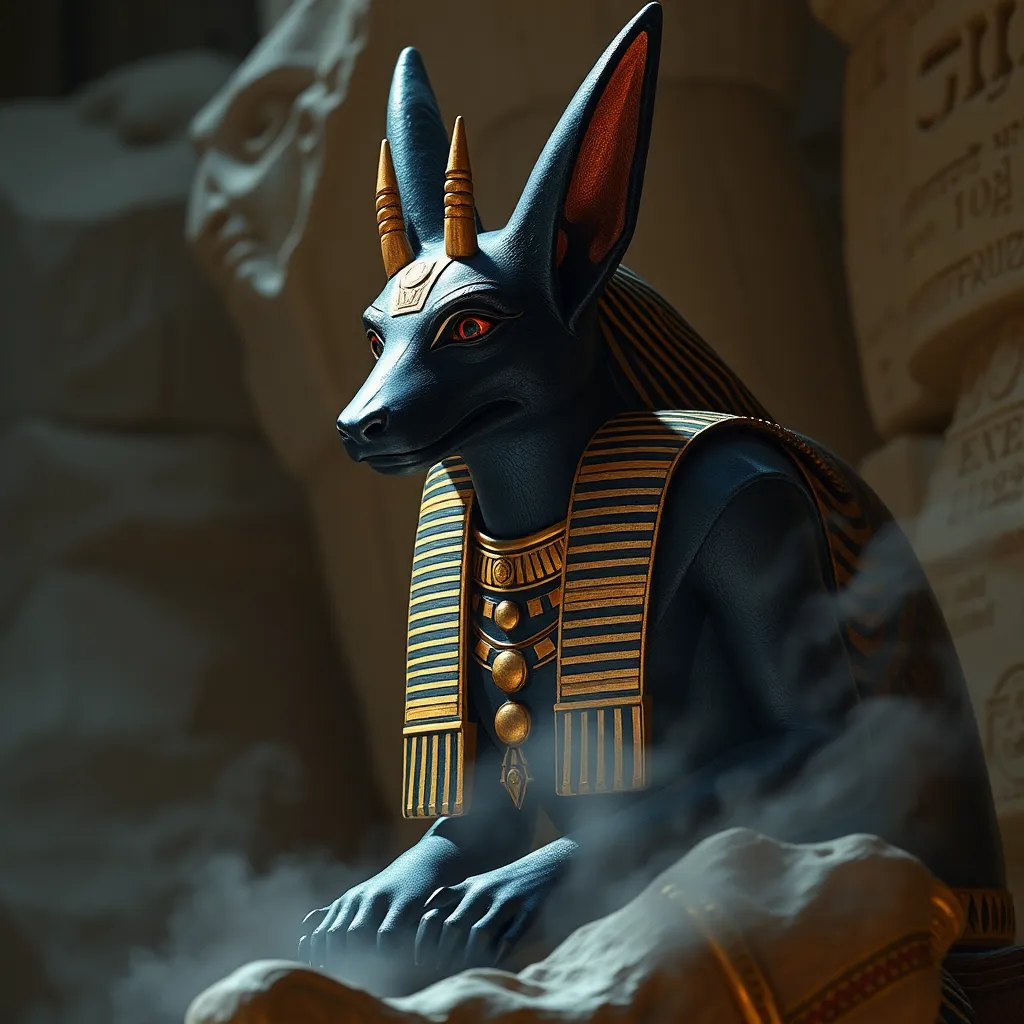The Underworld’s Judges: Unveiling the Babylonian Sheol and its Arbiters
I. Introduction
In ancient Babylonian mythology, the concept of Sheol represents the underworld, a shadowy realm where souls reside after death. This enigmatic place is not merely a destination; it is a realm governed by a complex system of judgment. The judges of Sheol play a crucial role in determining the fate of souls, reflecting the moral framework of Babylonian society.
This article aims to delve into the significance of Sheol in Babylonian belief, the judges that preside over it, and the broader implications of these beliefs on concepts of morality and justice in ancient times.
II. Historical Context of Babylonian Beliefs
To understand Sheol, one must first appreciate the rich tapestry of ancient Babylonian culture and religion. Mesopotamia, often referred to as the cradle of civilization, was characterized by its polytheistic belief system, where gods and goddesses influenced every aspect of life and death.
The afterlife was an essential component of Mesopotamian belief. Unlike the more developed concepts of heaven and hell found in later religions, the Babylonian afterlife was seen as a continuation of existence in a dim, subterranean world. The lack of detailed accounts about the afterlife has led to various interpretations, often sourced from:
- Mythological texts
- Religious inscriptions
- Archaeological findings
III. Understanding Sheol
Sheol is often described as a bleak and desolate place, where the souls of the deceased wander aimlessly. It is not a place of torment like the later conceptions of hell, but rather a shadowy existence devoid of joy or purpose.
Distinct from other mythological underworlds, such as the Greek Hades or the Egyptian Duat, Sheol embodies a unique conception of death. While Hades is often depicted as a realm of both punishment and reward, and Duat features trials and tribulations for the soul, Sheol is a more passive realm where souls await judgment.
In the context of Babylonian cosmology, Sheol reflects the dual nature of existence—life and death intertwined, where the deceased continue to exist, albeit in a diminished capacity.
IV. The Judges of Sheol
The judges of Sheol are pivotal figures in Babylonian mythology, overseeing the fate of souls. The primary judges include:
- Éa: Often considered the god of wisdom and water, Éa plays a role in the judgments made in Sheol.
- Gugalanna: Known as the Bull of Heaven, he is associated with the underworld and judgment.
- Ishtar: The goddess of love and war, Ishtar also has a significant influence over the underworld, particularly in myths concerning resurrection.
These judges bear the responsibility of assessing the deeds of souls during their earthly lives. The symbolism of judgment is profound, reflecting the moral values of Babylonian society, where actions in life directly influence one’s fate in death.
V. The Process of Judgment
The process of judgment in Sheol is a structured affair, where souls are led before the judges for assessment. The overview of this process can be broken down into several key steps:
- Arrival: Upon death, souls journey to Sheol, where they are met by the judges.
- Evaluation: The judges scrutinize the life of the deceased, considering their choices and actions.
- Verdict: Based on their evaluation, the judges deliver a verdict that determines the soul’s fate.
The criteria for judgment involve a complex interplay of moral and ethical considerations, including:
- Actions towards others
- Adherence to societal laws
- Religious observance and piety
Depending on the outcome of the judgment, souls may find themselves in a state of discontent or be granted a more favorable existence in Sheol, where they might remain in a more peaceful state.
VI. Myths and Legends Surrounding the Judges
Numerous myths and legends surround the judges of Sheol, each illustrating the cultural significance of these figures and the moral lessons they impart. One notable story features the tale of Inanna’s descent to the underworld, where she confronts the judges and faces trials that reflect her earthly actions.
The cultural significance of these myths extends beyond mere storytelling; they serve as allegories for human behavior and societal values. The narratives often reflect:
- The importance of justice and fairness
- The consequences of moral transgressions
- The potential for redemption and transformation
VII. Comparisons with Other Mythological Judgments
When comparing the Babylonian concept of judgment with that of other cultures, several similarities and differences emerge. For instance:
- Greek Mythology: Like the Babylonians, the Greeks believed in a judgment process, but this often included varied realms such as Elysium for the virtuous and Tartarus for the condemned.
- Egyptian Beliefs: The Egyptians held a more elaborate system of judgment involving the weighing of the heart against a feather, symbolizing truth and justice.
The influence of Babylonian concepts of judgment can be seen in neighboring cultures, where elements of their mythology were adopted and adapted. Over time, these ideas evolved, leading to more complex theological frameworks in later religions that incorporated themes of morality, sin, and redemption.
VIII. Conclusion
In summary, the exploration of the Babylonian Sheol and its judges reveals a rich tapestry of beliefs about the afterlife and morality. The judges serve as arbiters of fate, reflecting the societal values of ancient Babylon. The enduring legacy of these beliefs continues to resonate today, as discussions of morality and justice echo through the ages. The insights gained from these ancient ideas provide valuable perspectives in contemporary discourse on ethics and the human condition.
Ultimately, the judges of Sheol remind us of the timeless nature of moral accountability, urging us to consider the weight of our actions and the legacies we leave behind.



